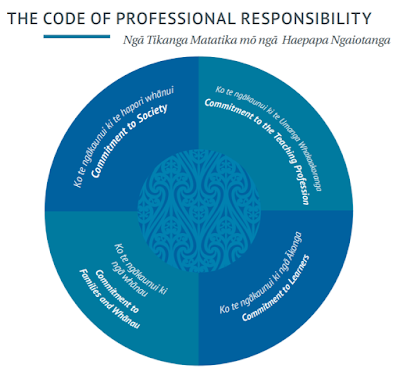"Reflective practice has long been advocated in teacher education as a means to improve one’s awareness and effectiveness as a teacher." Gibbs (2007, p91).
Before we can start the reflection process is it important that we look at what reflection actually looks like. Finlay states that reflection involves "being self-aware and critically evaluating their own responses to practice situations. The point is to recapture practice experiences and mull them over critically in order to gain new understandings and so improve future practice. This is understood as part of the process of life-long learning." (2009. p1). Life long learners is what the NZ Curriculum is trying to create. This includes 21st Century Skills such a collaboration and critical thinking, aspects of our inquiry.
I have chosen to use Gibbs Reflective Learning Cycle as is aligns with the Teaching as Inquiry Model we use at WBHS.
It shows that we have to be continually looking at what happens and the impact it has on everyone. This is for both positive and negative events, and nothing happens the same way twice.
Step 1 (What): Describe something that is significant and has happened during your Inquiry so far.
Attempting to use the jigsaw method of peer teaching. Well the Y10 class I had, was not ready for this.
The lack of student agency surprised me. Most of the students I have worked with in this way have really taken to having the ability to control what they are learning and at their own pace. However, this has been in older students who are taking the subject by choice, and not as a requirement. When looking at Gibbs model the analysis has to come from talking to the students. I had prepared them for what was going to be happening but it was also something I told them they were going to be doing. It was not a choice for them in the way I thought it would be. How can I use this as a method of digital collaborative learning if they haven't gained the knowledge to teach others?
Step 3 (Now What): Analyse the implications from this event to the rest of your Inquiry
So what does this mean? My task for digital, collaborative learning will need to change. I will need to discuss with my students what aspects they found hard and how can we work together to overcome these. This is an important part of the inquiry, the relationship building, and is something I/we have talked about in a number of our previous assignments. Collaboration will not work, unless everyone is involved and can see the value in it. This is what will help in improving the student agency and, hopefully, getting engagement in the inquiry.
References:
Finlay, L. (2009). Reflecting on reflective practice. Practice-based Professional Learning Centre, Open University. Retrieved from http://www.open.ac.uk/opencetl/sites/www.open.ac.uk.opencetl/files/files/ecms/web-content/Finlay-(2008)-Reflecting-on-reflective-practice-PBPL-paper-52.pdf
Gibbs, C. (2007). Reflections through Invisible Glass Walls: Self-Study of Teacher and Artist. Waikato Journal of Education, 13, 91–102. Retrieved from https://search.ebscohost.com/login.aspx?direct=true&db=ehh&AN=33979639&site=ehost-live
Images:
Education Perfect https://www.educationperfect.com/controlpanel/#/tasks
Gibbs' Reflective Learning Cycle Retrieved from https://www.sheffield.ac.uk/ssid/301/study-skills/university-study/reflective-practice







